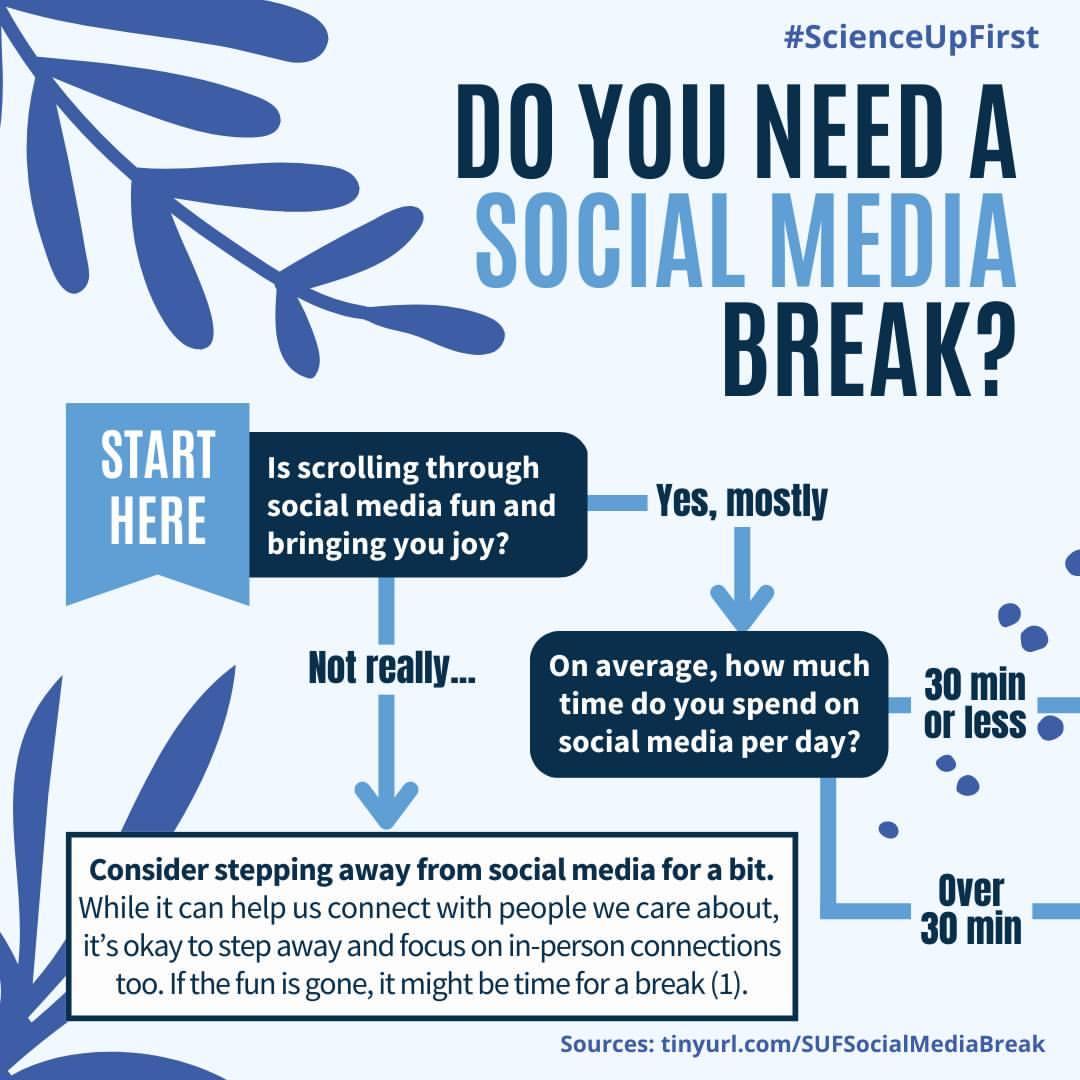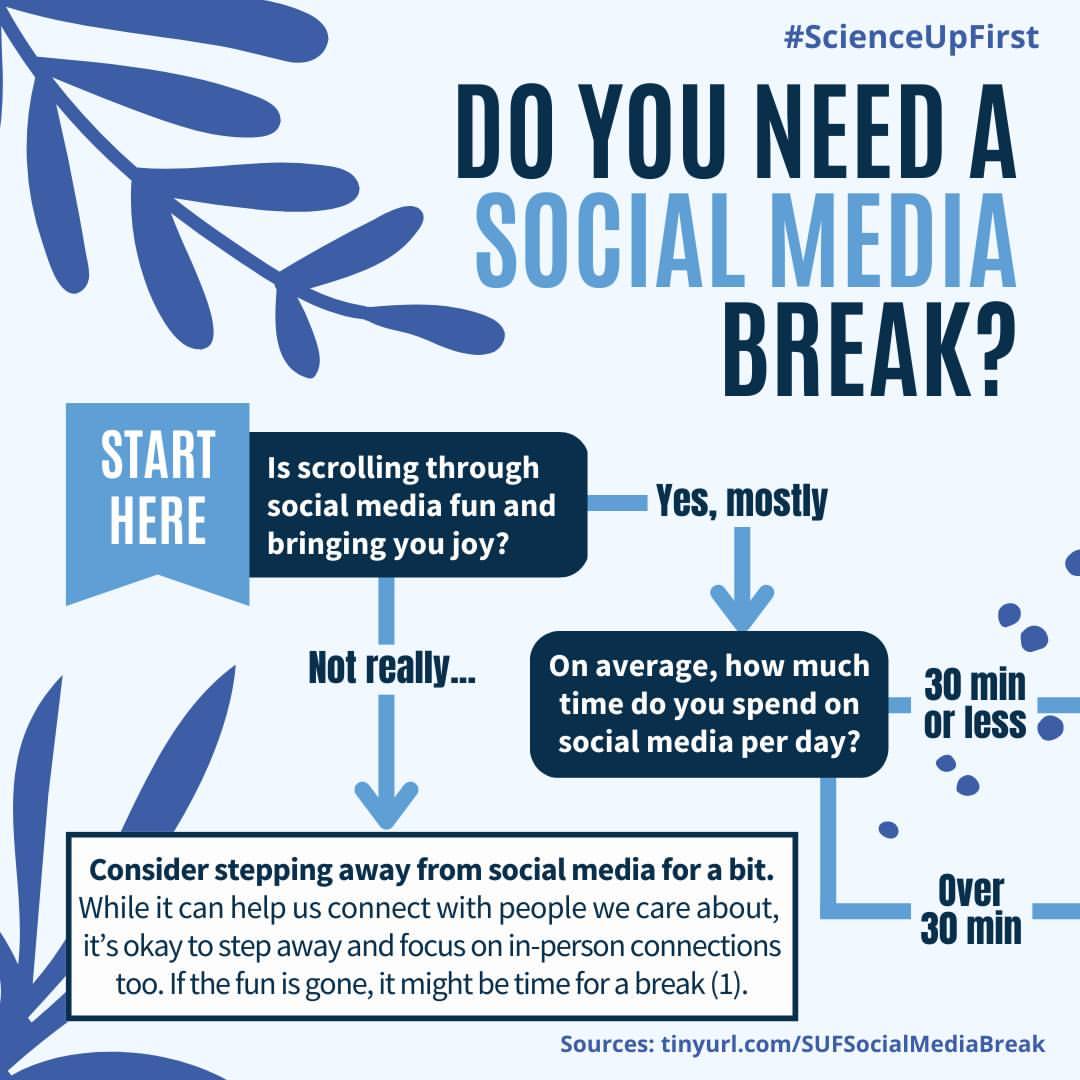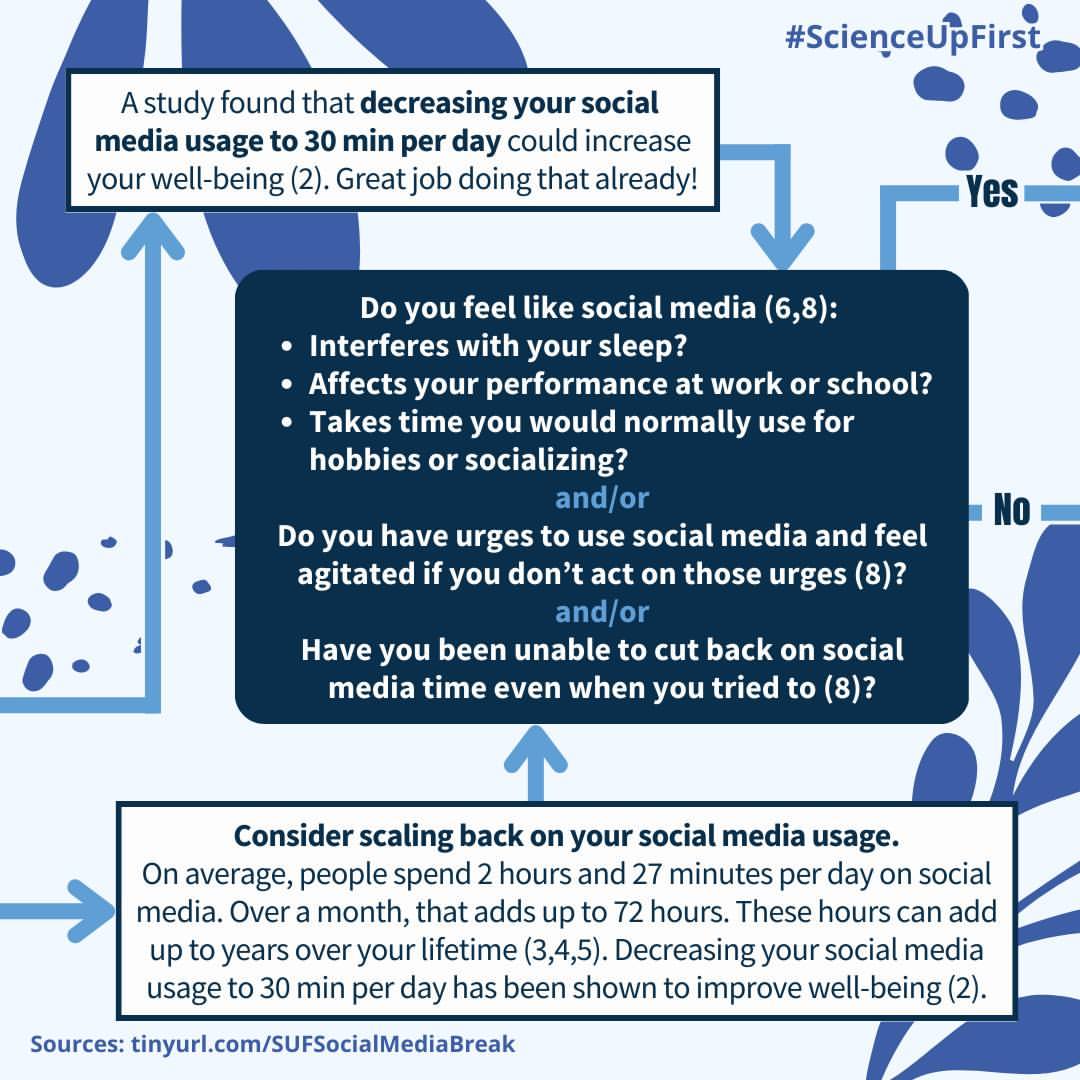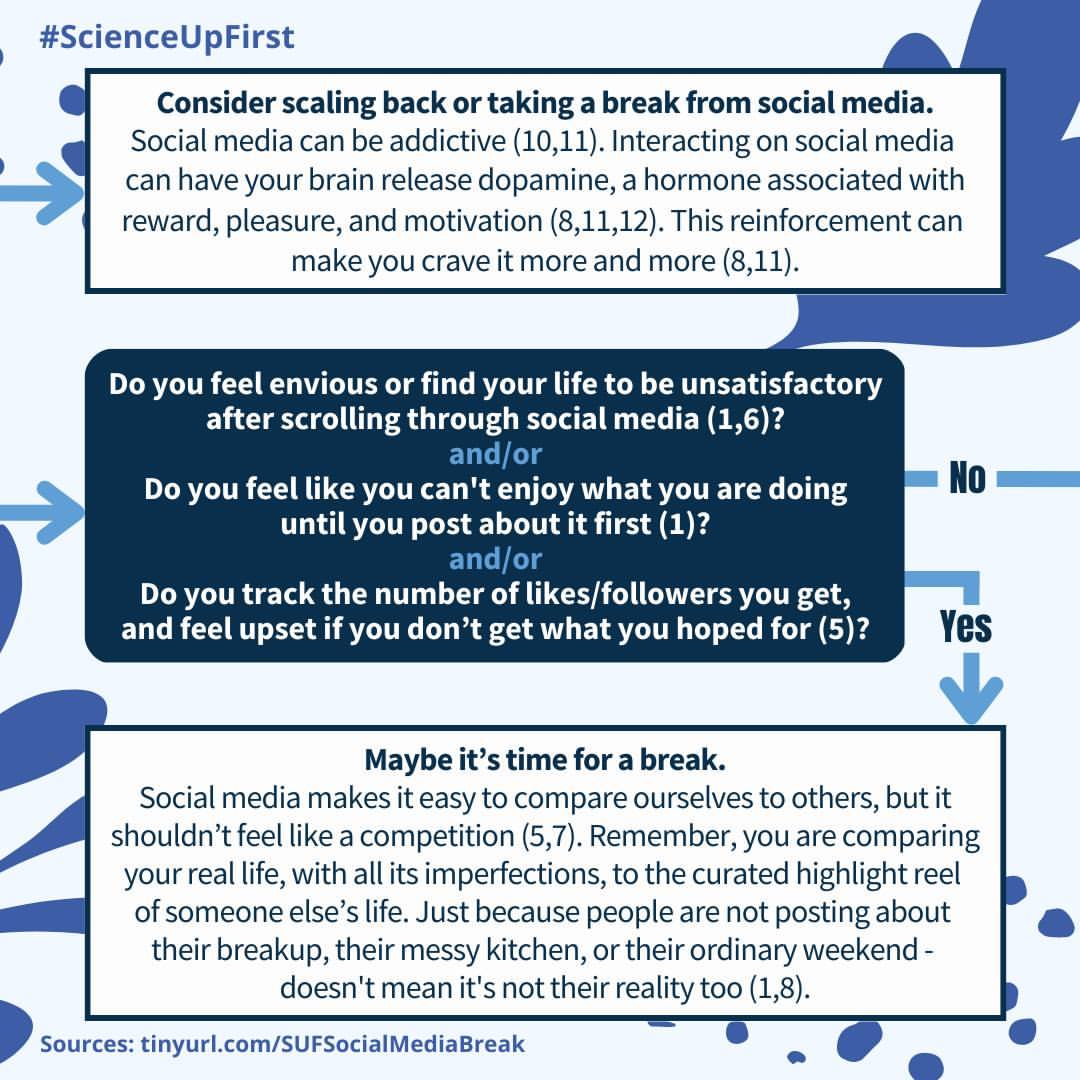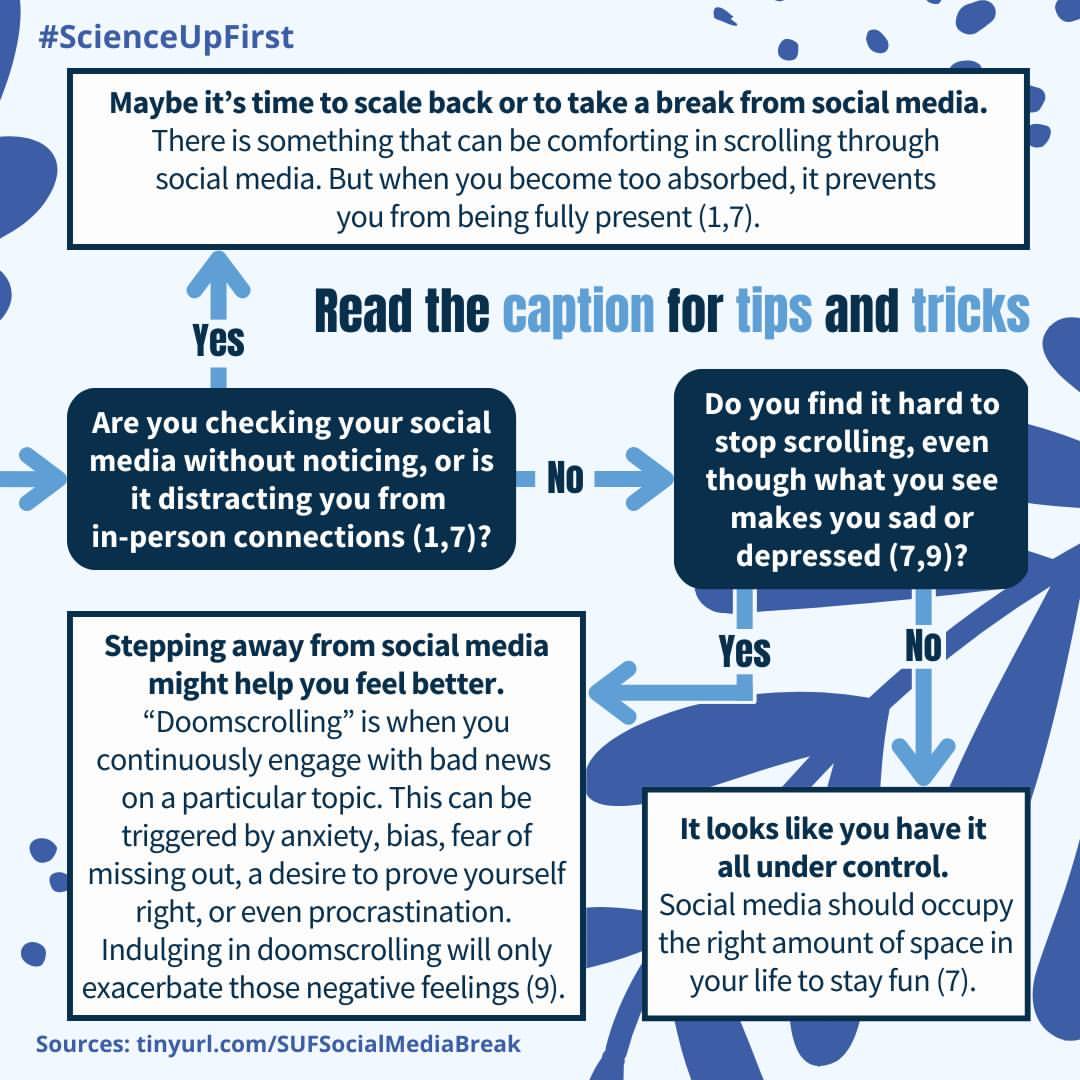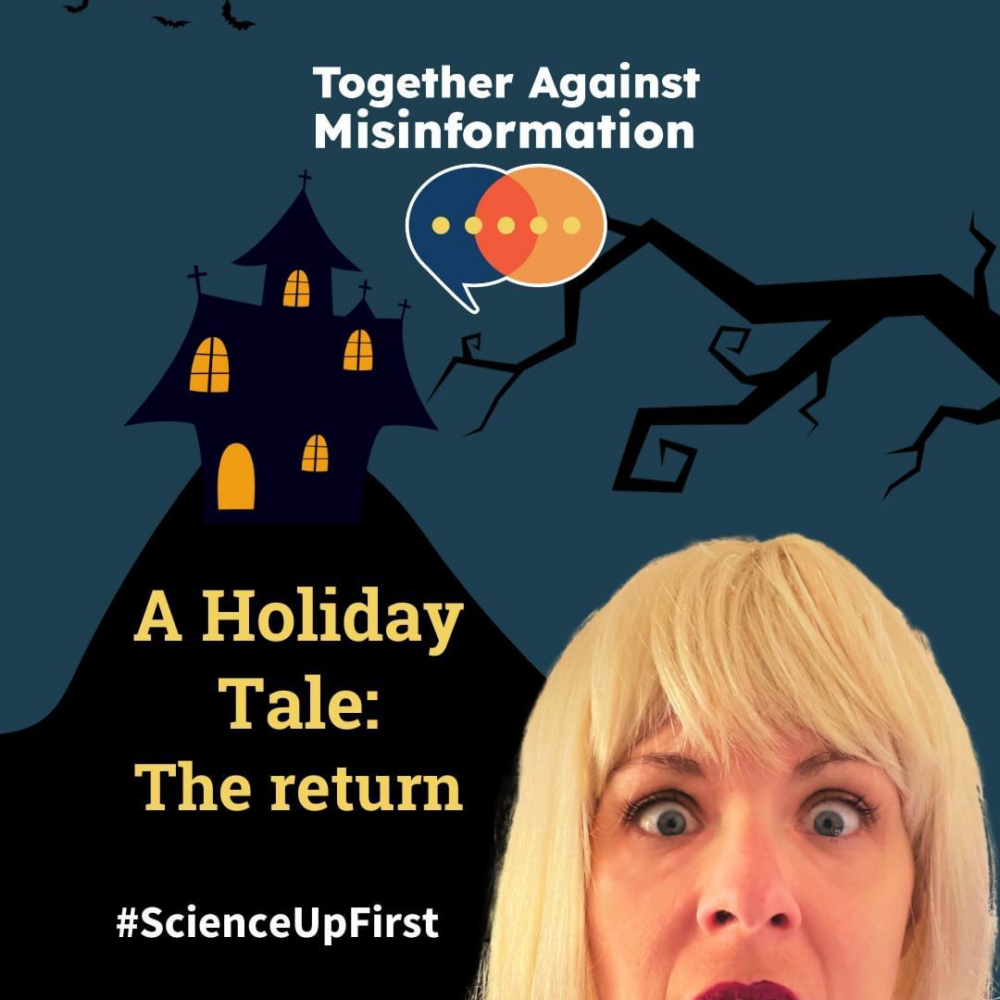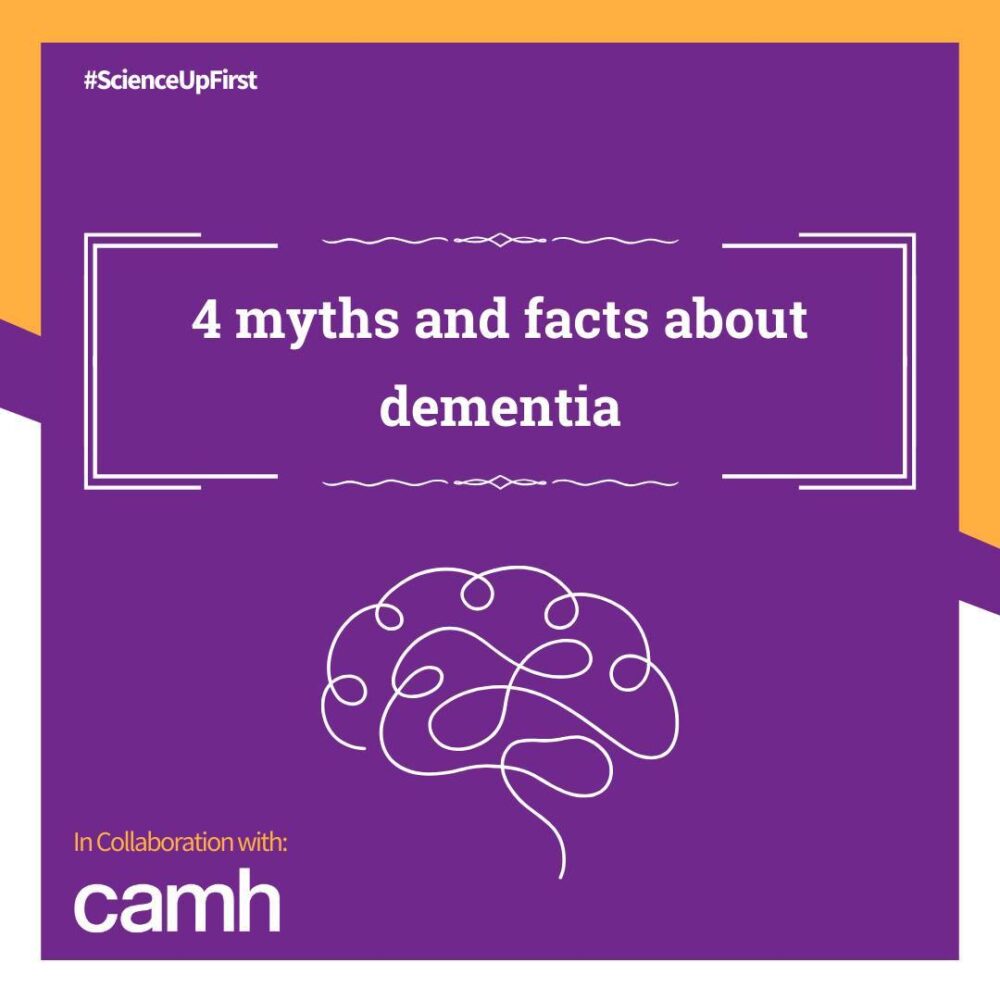Reducing your screen time doesn’t have to be all or nothing.
Start here
-
- Is scrolling through social media fun and bringing you joy?
-
- Yes, mostly (3)
- Not really… (2)
-
- Consider stepping away from social media for a bit – While it can help us connect with people we care about, it’s okay to step away and focus on in-person connections too. If the fun is gone, it might be time for a break (1).
-
- On average, how much time do you spend on social media per day?
- 30 min or less (4)
- Over 30 min (5)
- On average, how much time do you spend on social media per day?
-
- A study found that decreasing your social media usage to 30 min per day could increase your well-being (2). Great job doing that already! (6)
-
- Consider scaling back on your social media usage – On average, people spend 2 hours and 27 minutes per day on social media. Over a month, that adds up to 72 hours. These hours can add up to years over your lifetime (3,4,5). Decreasing your social media usage to 30 min per day has been shown to improve well-being (2). (6)
-
- Interferes with your sleep?
- Affects your performance at work or school?
- Takes time you would normally use for hobbies or socializing?
and/or
Do you have urges to use social media and feel agitated if you don’t act on those urges (8)?
and/or
Have you been unable to cut back on social media time even when you tried to (8)?
-
-
- Yes (7)
- No (8)
-
and/or
Do you feel like you can’t enjoy what you are doing until you post about it first (1)?
and/or
Do you track the number of likes/followers you get, and feel upset if you don’t get what you hoped for (5)?
-
-
- Yes (9)
- No (10)
-
-
- Maybe it’s time for a break – Social media makes it easy to compare ourselves to others, but it shouldn’t feel like a competition (5,7). Remember, you are comparing your real life, with all its imperfections, to the curated highlight reel of someone else’s life. Just because people are not posting about their breakup, their messy kitchen, or their ordinary weekend – doesn’t mean it’s not their reality too (1,8).
-
- Stepping away from social media might help you feel better – “Doomscrolling” is when you continuously engage with bad news on a particular topic. This can be triggered by anxiety, bias, fear of missing out, a desire to prove yourself right, or even procrastination. Indulging in doomscrolling will only exacerbate those negative feelings (9).
-
- It looks like you have it all under control. Social media should occupy the right amount of space in your life to stay fun (7).
Social media occupies a big place in our lives, but when does it become too much? Use this decision tree to assess if you might benefit from a social media break.
For many of us, social media is an important part of our life, and blocking these apps completely might not be realistic nor something we want to do (13). Fortunately, there are multiple ways we can step back and take a break from social media. It does not have to be all or nothing. Here are some examples of what a social media break can look like (5,7,13,14):
- Gradually reduce your average time online.
- Limit your social media use to a specific time period each day (e.g., during lunch time) or week (e.g., only on the weekend).
- Have one social media-free day per week.
- Unplug completely from all or some social media platforms for a specific period of time (e.g., one week or one month).
- Limit the purposes you use apps for (e.g., only looking at content posted by friends).
How you choose to step away and take a break really depends on what your goals are (5,7). Here are some tips that can help you with your goals (5,7,13,15):
- Turn off your notifications to prevent unsolicited distraction.
- Delete one or all social media apps from your phone and/or computer
- Leave your phone in a different room.
- Track your social media usage and set time limits.
- Curate your feed – Unfollow accounts that trigger negative emotions.
- Turn off personalized recommendations for posts and ads that would otherwise keep you scrolling.
- Focus on in-person rather than online connections.
- Share your goals with others to improve accountability and allow them to respect your boundaries (e.g., asking friends not to share TikTok videos with you).
Social media can trigger negative emotions and damage our mental health, making us more anxious and depressed (5,10,16). Reflecting on how you use social media and how it makes you feel is one way to take care of your mental health (7). Sometimes a little break is all we need… ❤️
- 8 Signs You Need to Take a Break From Social Media
- No More FOMO: Limiting Social Media Decreases Loneliness and Depression
- Global daily social media usage 2022
- The rise of social media
- When to Take a Break from Social Media
- 10 Signs You Need a Social Media Break & 20 Things to Do Instead
- How to Take a Social Media Break: Tips & Benefits
- Social Media Addiction
- Doomscrolling: What It Is & How to Stop
- Social Media & Mental Health
- Social Media Addiction: Signs, Symptoms & Treatments
- Dopamine: What It Is, Function & Symptoms
- How and Why to Take a Social Media Break
- Taking a One-Week Break from Social Media Improves Well-Being, Depression, and Anxiety: A Randomized Controlled Trial
- Doomscrolling + 3 other signs you need a break from social media
- Social Media Use and Its Connection to Mental Health: A Systematic Review
Share our original Bluesky Post!
Social media plays an important role in our lives, but where does the line lie? Use this decision tree to determine if a break from social media would be beneficial for you. 👇 scienceupfirst.com/mental-healt… It doesn’t have to be all or nothing. #ScienceUpFirst #MentalHealthWeek
— ScienceUpFirst (@scienceupfirst.bsky.social) May 8, 2025 at 10:51 AM
[image or embed]

